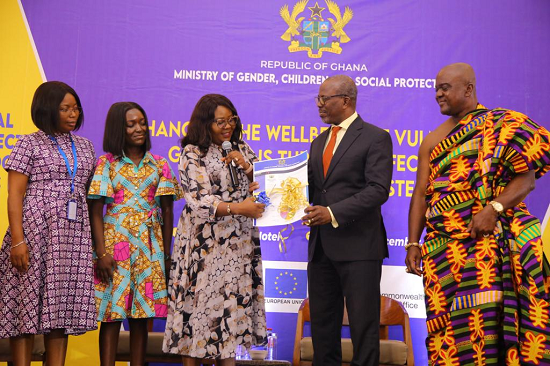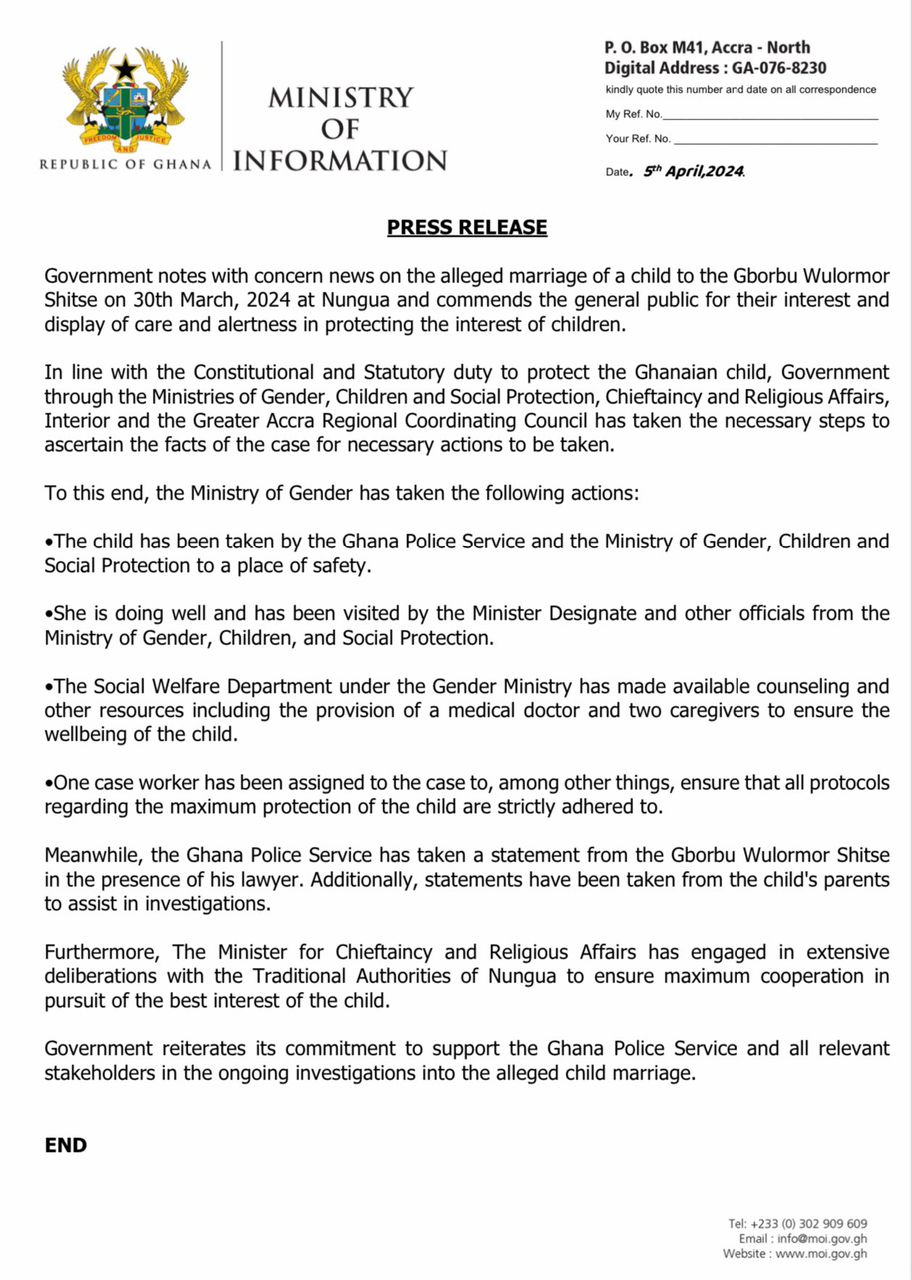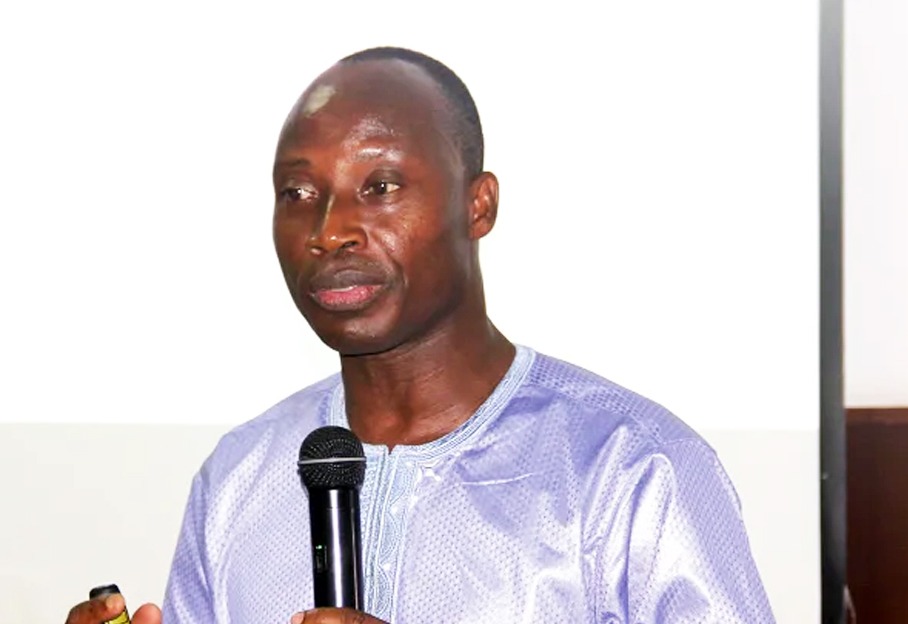
Any process to increase female participation in governance and create an all-inclusive governance structure?where woman, persons with disability and the youth equitably participate?will not succeed unless it is deliberate and planned.
According to Rev. Dr Comfort Asare, Director, Department of Gender, Ministry of Gender, Children and Social Protection (MoGCSP), who made the observation at a Forum in Accra on June 18, 2019, on the Passage of the Affirmative Action Bill into Law,Ghana had a constitutional obligation to actively promote the integration of the people of Ghana and prohibit discrimination and prejudice on grounds of origin, circumstances of birth, ethnic origin, gender or religion, creed or other beliefs.
An Affirmative Action Law, Rev. Dr Asare said, was, therefore, Ghana's only way of attaining gender equality with respect to women's participation in decision-making, as it provided legally-mandated systems, structures and policies to ensure women's equal representation.
She said since 2011, MoGCSP, in collaboration with other stakeholders, had embarked on the agenda of developing an Affirmative Action Bill and that the process was ongoing.
The Bill, she said, when passed into Law, would require government to ensure equitable gender representation at all levels of governance and decision-making in Ghana, as well as address other social and economic imbalances.
An Affirmative Action Law, Rev. Dr Comfort Asare added, would affect women's representation in the public service, ministerial positions, independent constitutional bodies, boards of state institutions, the security services and political parties.
In an address, Madam Hamida Harrison, Programmes Manager, ABANTU for Development and Convener, Women's Manifesto Coalition, noted that the absence or non-visibility of women on platforms where key national decisions were taken did not promote gender parity as demanded by the 1992 Republican Constitution and international Protocols, and Conventions to which Ghana was a signatory.
An Affirmative Action Law, Madam Harrison said, would, therefore, ensure that a greater number of women get the opportunity to play active roles in national discourse.
In her remarks, Dr Rose Mensah Kutin, a Ghanaian gender advocate and the West Africa Regional Director, ABANTU for Development? a gender and policy advocacy Non-Governmental Organization (NGO)? reminded the state of its obligation to use mechanisms that prioritized gender equality and fairness in consonance with the 1992 Constitution.
Speaking on the topic: Moving the Advocacy for the Passage of the Affirmative Action Bill into Law, Mrs Joana Adzoa Opare, Executive Director, Gender Planning Consults Limited and Deputy Chairperson of the Affirmative Action Bill Technical Committee, described an Affirmative Action Law as an important tool that could help correct the inequities and imbalances in public life.
Mrs Opare said the law was urgently needed to address the existing gaping disparity to ensure the integration of the marginalized, especially women, both as participants in planning and policy-making, and as beneficiaries.
She referred to Article 17 (4) of the 1992 Republican Constitution of Ghana, which she said, justified the promulgation of an Affirmative Justice Law in Ghana. Article 17 (4) of the 1992 Constitution provides as follows:
(4) Nothing in this article shall prevent Parliament from enacting laws that are reasonably necessary to provide -
(a) for the implementation of policies and programmes aimed at redressing social, economic or educational imbalance in the Ghanaian society;
She also cited Goal 5 of the United Nations Sustainable Development Goals (UN SDGs) which call for the achievement of gender equality and the empowerment of women and girls; the Convention on the Elimination of all forms of Discrimination Against Women (CEDAW); Articles 18 and 19 of the Solemn Declaration for Gender Equality in Africa (SDGEA); the Beijing Platform for Action (1995); and the Protocol to the African Charter on Human and Peoples' Rights on the Rights of Women in Africa, among others, as basis for an Affirmative Law in Ghana.
Welcoming participants to the Forum, Mad. Grace Ampomaa Afrifa, Programmes Officer, ABANTU for Development, noted that even though attempts had been made since 1998 to promulgate an Affirmative Action Law in Ghana, the national urgency required to direct the process to see the Bill passed into Law had been extremely slow.
Mad. Afrifa, therefore, called for the upscaling of effective strategies to secure the passage of the Bill into Law and, thereby, enhance the principles of political pluralism, democracy and good governance
ABANTU for Development, with support from the African Women's Development Fund (AWDF), is implementing a two-year project dubbed: Strengthening Advocacy for the Passage of the Affirmative Action Bill into Law in Ghana which was launched in Accra in September 2018.
The Forum, organized by ABANTU for Development, with support from the African Women's Development Fund, therefore, formed part of efforts to implement the project.
The overall goal of the forum was to actively engage with MoGCSP to ascertain the actual status of the Draft Affirmative Action Bill and Government's commitment to the process of passing the Bill into Law; equip stakeholders with the requisite knowledge on the Affirmative Action Law, as well as on the Bill, in general, to enable them influence a more robust advocacy; and to enhance relationships between stakeholders and the MoGCSP for better collaboration on the process.
The Forum also aims to enable participants discuss and design strategies and plans that will enhance advocacy for the immediate passage of the Bill into Law.
In addition, the Forum aimed to mobilize a broader diversity of stakeholders in influencing Government and other stakeholders for the passage of the Affirmative Action Bill into Law.
Read Full Story

















Facebook
Twitter
Pinterest
Instagram
Google+
YouTube
LinkedIn
RSS